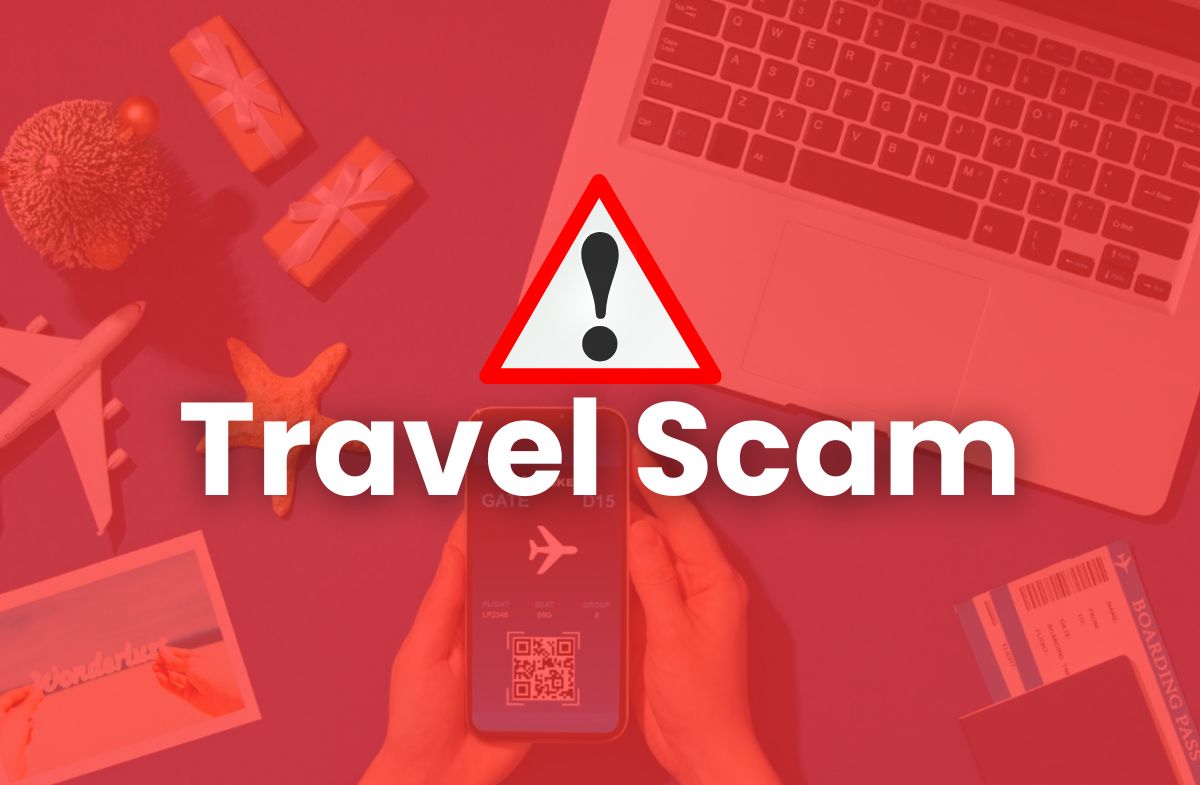Planning a trip? Be careful—what looks like a great hotel deal could be a scam in disguise. Fake travel booking sites are popping up everywhere, and they’re fooling even smart, experienced travelers. These sites mimic trusted platforms like Booking.com and Airbnb, tricking users into handing over their money and personal information.
In May 2024 alone, 1 in every 33 new travel websites was flagged as suspicious. Scammers are using real logos, fake reviews, and convincing websites to steal from travelers. If you’re not careful, your dream vacation could turn into a financial nightmare.
Fake Travel Booking Sites Are on the Rise
Booking a vacation or hotel room online is a breeze nowadays, thanks to sites like Booking.com and Airbnb.
However, there’s an increasing risk that travelers must watch out for: fake websites that appear exactly like authentic ones.

These fake websites are created to take your money or personal information. They replicate the design logo, design, and even the domain names of trusted websites to fool you. Surprisingly, studies show that one out of every 33 new travel sites launched by May 20, 2024, was suspect or could be fraudulent.
The scammers are clever. From fake hotel listings to fake reviews to sending fake confirmation emails and more, they’ll use any means necessary to make their site appear legitimate.
Real-Life Scam: PS370,000 Lost in a Booking.com Fraud
One of the most recent scams was reported in the UK. Between June 2023 to September 2024, victims were able to lose 370,000 pounds (that’s about EUR444,000, or around Rs4 million!) to a fake Booking.com website. The website appeared authentic until payments were taken and personal data was used to make fraudulent transactions.
This suggests that regardless of whether a website seems trustworthy, it could have a problem. Travelers must be cautious before booking a trip.
How These Fake Booking Sites Work
Scammers employ a variety of techniques to deceive people:
- Cloning Real Sites: Fake websites look almost the same as Booking.com as well as Airbnb. perhaps replicating the logos as well as the layouts.
- Stolen Information: They ask for details about your credit card or ID. Then they use it to commit identity theft.
- Paying for suspicious transactions: Payments are often requested via the use of crypto or wire transfers, methods that are difficult to trace or even refund.
- fake listings: These websites use fake images and fake reviews in order to show properties that aren’t even there.
Once you’ve paid, fraudsters disappear, leaving you without a reservation and no option to recover your money.
How to Protect Yourself from Scams on Fake Bookings
Here are easy tips to help you avoid these dangers:
Look up the correct URL. Verify that the URL is the genuine site (like www.booking.com).
Avoid domains that look suspicious, such as booking-com.xyz.
- Check for HTTPS: a secure website has “https://” and a padlock in the address bar.
- Make sure you use trusted payment options.
- Make sure you pay only using the official payment gateways of the platform.
- Avoid crypto or wire transfers.
- Don’t make payments outside of The Platform: Don’t pay cash directly to the property through mail or WhatsApp.
- Check the property. Search for the property using Google or search for it on multiple booking platforms.
- Make sure you enable 2FA by turning on two-factor authentication to secure your account for bookings.
- Make sure you use trusted platforms. Use only popular, reviewed booking websites. Beware of links in advertisements in emails or on social media.
Already Got Scammed? Do This Immediately
If you suspect that you have been fooled by a fraudulent website:
- Get in touch with your Bank: Report the transaction and attempt to reverse the money.
- Alert the real site: Let Booking.com, Airbnb, or any other genuine platform be aware.
- Report to authorities: File a complaint with the local police department or consumer protection authorities.
- Watch Your Bank Accounts Monitor your bank account and credit activity for any unusual behaviour.
- Beware of others: Share your story via forums or social media to ensure that others are secure.
Scammers are becoming more sophisticated each day. With fake travel websites appearing everywhere, It’s now more essential as ever be sure to confirm the source of your booking. This Booking.com replica could be a scam.

